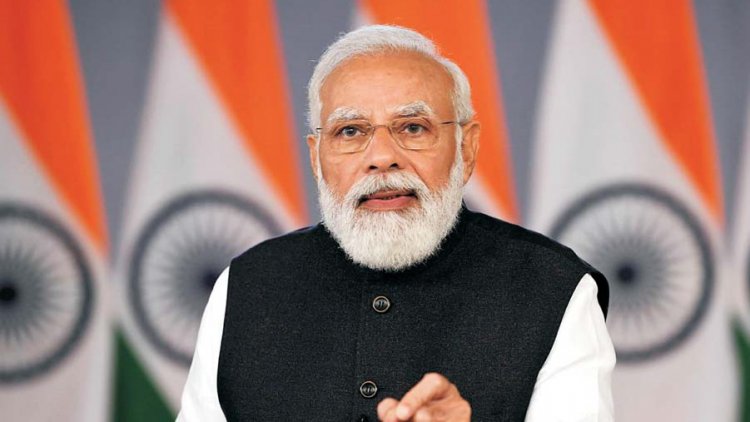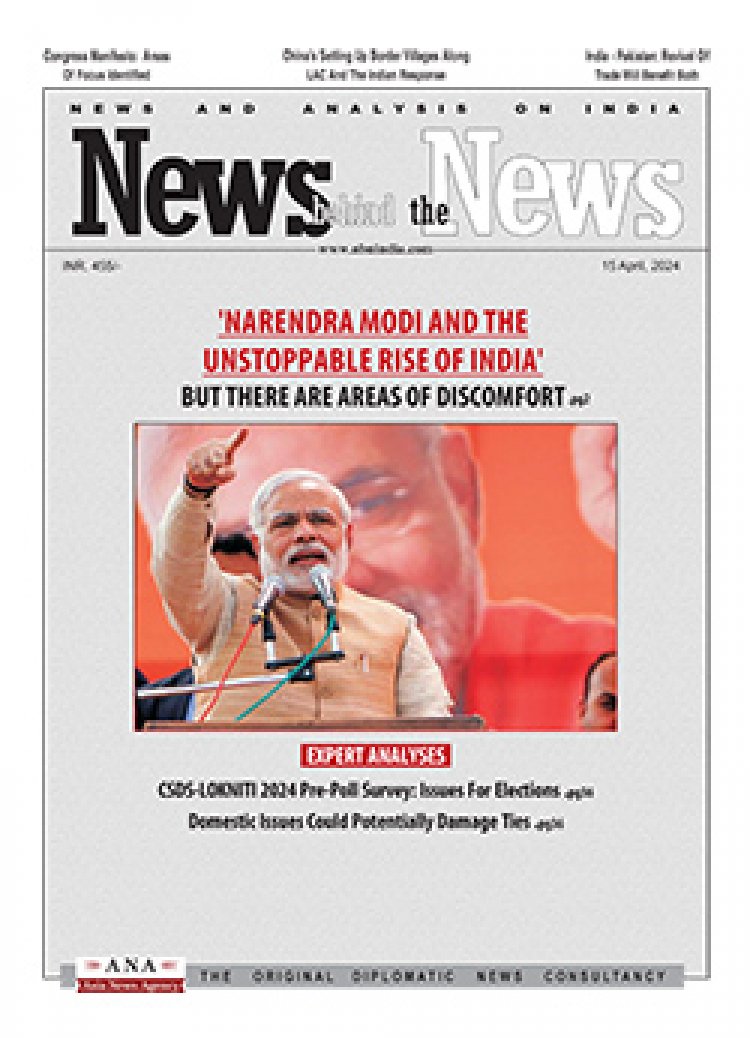PM Modi on ‘Freebies’ Culture: Re-Defining the Notion of a Chartable State
Asia News Agency

While in Bundelkhand, Uttar Pradesh, PM Narendra Modi last week criticised non-BJP governments of their freebies culture defining it as ‘rewadi’ culture. ‘Rewadi’ is a north Indian sweet. This has been interpreted in various ways by supporters and critics.
A careful reading of Modi’s speech, writes Hilal Ahmed (Associate Professor, CSDS, New Delhi) “reveals that he was actually trying to redefine the idea of social justice to accommodate it in his doctrine of New India. More specifically, there was an attempt to specify the contours of….the ‘charitable State’: a pro-market State that provides some facilities to citizens on a case-to-case basis and, at the same time, bargains with them in the realm of competitive electoral politics.”
The notion of a chartable State has evolved in India. The Constitution describes welfarism as a political duty of the State simply to recognise citizens as rights-bearing stakeholders. This constitutional imagination, however, writes Ahmed “has been significantly redefined by successive governments in the last three decades.”
BJP’s version of the charitable State
The Modi-led BJP has given new meanings to “welfarism without deviating from the national political consensus on the open market and sectoral empowerment. It has made a serious effort to reach out to individuals — the labharthis (beneficiaries) — for direct and effective political transactions. Modi’s criticism of the culture of freebies actually stems from the BJP’s version of the charitable State.”
Ahmed identifies four aspects of Modi’s speech to elaborate this point.
Correlation between responsive government and responsive citizens: First, “Modi rejects the culture of freebies on the basis of his imagination of responsive citizens. It is important to note here that the doctrine of New India is based on a direct correlation between responsive government and responsive citizens. In this schema, the citizen is seen as a duty-bound entity.”
Modi reiterates this point by asserting, the ‘culture of freebies is very dangerous for the development of the country… and the people… especially youth need to be very careful of this… The double-engine governments are not adopting the shortcut of distributing freebies, but they are working hard to improve the future’.
The charitable State actually functions as a ‘facilitator’ for the open market: Second, PM Modi has argued that non-BJP governments ‘will never build new expressways, airports or defence corridors for you. They feel that they will buy the people by distributing freebies to them.’ This, writes Ahmed “is a very important point of departure. The charitable State actually functions as a facilitator for the open market by creating an infrastructure for its smooth functioning. The welfare schemes targeting individual ‘labharthis’ are to be described as an extension of this receptive developmental agenda…..” Modi made this point when he said: ‘Instead of the freebies culture, we are working to fulfil the aspirations of the people by building roads and new rail routes in the country….’
Re-defining social justice: Third, writes Ahmed, “Modi tries to unpack the political capabilities associated with the notion of social justice. Instead of defining social justice purely in terms of identity-based exclusions (religious, caste, and gender), he offered a development-oriented conceptualisation. Evoking the regional imbalance, especially in eastern India and the Bundelkhand region of Uttar Pradesh, Modi argued that infrastructural development in a backward region must also be seen as a kind of social justice….”
Political bargaining: The fourth point, is the “idea of political bargaining — a key feature of the charitable State model…..Modi urged the citizens to recognise the capabilities of a ‘double-engine’ government that would give them recognition, infrastructure and, above all, individual-centric benefits.”
Modi is thus bargaining with citizens “in such a manner that the welfare schemes introduced by non-BJP parties get electorally delegitimised.”















